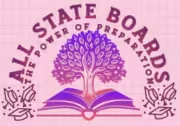State boards in India are responsible for conducting the Secondary School Certificate (SSC) exams for Class 10 and the Higher Secondary Certificate (HSC) exams for Class 12. Each state has its own board, which sets the curriculum, conducts exams, and maintains the quality of education. Here are some key points about state boards:
- Curriculum and Syllabus: State boards design their curriculum to meet the cultural, linguistic, and socio-economic needs of their respective regions. This often includes local history, culture, geography, and traditions.
- Exams: State boards conduct their own exams, such as the SSC for Class 10 and the HSC for Class 12. These exams are crucial milestones in a student’s academic journey and play a significant role in determining higher education opportunities and career paths.
- Medium of Instruction: State boards often use regional languages as the medium of instruction, making education more relatable and effective for students. English is also taught as a subject or used as a medium of instruction in some schools.
- Quality of Education: State boards aim to provide quality education by integrating technology and innovative teaching methods. They also work to improve standards and ensure consistency across schools.
- Diversity: State boards emphasize regional relevance and diversity, fostering a sense of pride and belonging among students.
Boards in India
The following 35 boards in India
A
- Andhra Pradesh Board of Secondary Education
- Assam Board of Secondary Education
- Assam Higher Secondary Education Council
B
C
D
G
- Goa Board of Secondary and Higher Secondary Education
- Gujarat Secondary and Higher Secondary Education Board
H
J
K
M
- Madhya Pradesh Board of Secondary Education
- Maharashtra State Board of Secondary and Higher Secondary Education
- Meghalaya Board of School Education
- Mizoram Board of School Education
N
O
P
R
S
T
- Telangana Board of Secondary Education
- Telangana State Board of Intermediate Education
- Tripura Board of Secondary Education
U
- Uttar Pradesh State Board of High School and Intermediate Education
- Uttarakhand Board of School Education
W
- West Bengal Board of Secondary Education
- West Bengal Council of Higher Secondary Education
- West Bengal Council of Rabindra Open Schooling
- West Bengal Board of Madrasah Education
- West Bengal Board of Primary Education
State board examinations in India, known by names such as Madhyamik, Secondary State Certificate, and Higher Secondary Certificate, are managed by various state education boards, leading to differing schedules and syllabi. Typically held in February and March, with results announced between April and May, these exams require students to apply in November, providing necessary personal and academic details. Examination datesheets are issued 40-60 days in advance, and admit cards are distributed 20-25 days before the exams.
Class 10 students generally take five core subjects including English, a regional language, Mathematics, Science, and Social Studies, with the option to add a sixth subject like Computer Science or Music. For Class 12, students choose from Science, Commerce, or Humanities streams. Science focuses on Physics, Chemistry, and either Biology or Mathematics, while Commerce covers business-related subjects such as Accountancy and Economics. Humanities encompasses social sciences and liberal arts, with subjects like History and Geography. Vocational subjects like Legal Studies and Fine Arts are available across all streams, and Hindi is offered variably as a compulsory or optional subject. All examinations are conducted in a traditional pen-and-paper format.
